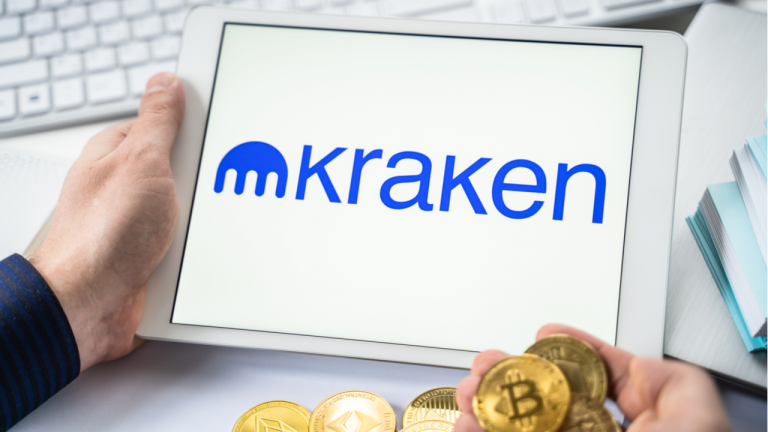
Kraken is planning to hand out more than $10 million in aid for clients affected by the military conflict in Ukraine. The amount covers the fees paid by Ukrainian residents in almost a decade and will also include those withheld from Russian traders in the first half of 2022.
Kraken Exchange to Give $1,000 in Bitcoin to Each Eligible Ukrainian Customer
U.S.-based crypto exchange Kraken is preparing to distribute $10 million to Ukrainian customers suffering from the Russian invasion. Between March 10 and July 1, clients who created an account from Ukraine prior to March 9, 2022, at “Intermediate” or “Pro” level verification, will be eligible to receive $1,000 in bitcoin (BTC), the platform announced in a blog post and on social media.
Kraken will distribute over $10 million worth of to aid clients in ??Ukraine. Tranche 1 recipients will be credited $1000 of #BTC, withdrawable tomorrow. The package is funded by historical Ukraine revenues and H1 2022 revenues from Russia-based trading.https://t.co/DdkY2TsVoB
— Kraken Exchange (@krakenfx) March 9, 2022
Ukrainian users will be able to immediately withdraw the funds from the exchange while currency conversion fees for amounts of up to $1,000 will be waived. The first of three planned tranches will be approximately equivalent to the total of the fees paid by residents of Ukraine since 2013.
An amount equivalent to the fees paid by Kraken users based in the Russian Federation in the first half of this year will also be donated. The exchange said it may grant additional aid in the future. Commenting on the deepening crisis in Ukraine, Kraken CEO Jesse Powell stated:
We hope to continue being able to provide critical financial services in a time of need to both our clients in Ukraine and in Russia. Cryptocurrency remains an important humanitarian tool, especially at a time when many around the world can no longer rely on traditional banks and custodians.
After Moscow launched its offensive in late February, the government in Kyiv urged crypto exchanges to freeze the accounts of Russian users. However, major global platforms, including Kraken and Binance, denied the request to unilaterally impose such restrictions on all traders from Russia. At the time, Powell noted that’s not a viable business option for his company.
The aid distribution is Kraken’s first such international initiative and represents efforts to align its business with the values of the crypto community, like the belief that all global citizens should have access to financial services. “This includes our clients in Russia, who may be actively trying to protest the ongoing conflict,” the exchange remarked, elaborating:
We believe this aid program benefits both our company and our clients, ensuring none are disenfranchised by the actions of their representatives and leaders.
Kraken further emphasized it’s ready to respond to requests from authorities in affected regions and is closely monitoring the situation in Ukraine to ensure it’s abiding by relevant sanctions. The announcement also provides detailed information on how the crypto aid will be distributed and the applicable eligibility requirements.
Ukrainian officials and volunteer groups have actively sought to acquire funding through crypto donations. The digital money raised since the beginning of the conflict have been used to finance both defense efforts and solve humanitarian problems.
The world’s leading crypto exchange by trading volume, Binance, is supporting humanitarian efforts in Ukraine, too. The platform announced the donation of $10 million for the Ukrainian people and the Binance Charity Foundation gave Unicef $2.5 million worth of cryptocurrency to address the needs of children and their families.
Do you expect other major crypto exchanges to support Ukrainian users suffering from the ongoing military conflict? Tell us in the comments section below.